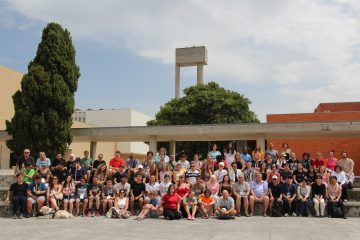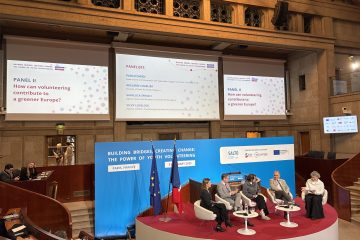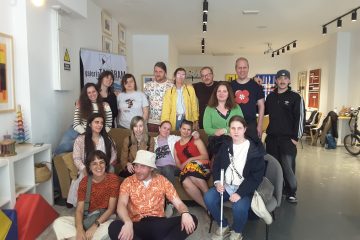Last month, between 4 and 6 October, our director, Anca David, was in Podgorica, Montenegro, to participate in the SNAC Volunteering Conference 2023: “Shaping Volunteering in Europe and Beyond”. The event gathered actors of the European Solidarity Corps (ESC) programme and enthusiasts of the volunteering cause from across the EU and the ESC programme’s partner countries. In her blog, Anca recollects her experience at the conference, what she has observed and the knowledge she has gathered.

“This was the first time I came to learn about this conference, which is the result of the strategic cooperation between national agencies and the SALTO Resource Centres on volunteering (SNAC volunteering). The conference’s activities are geared towards reinforcing the European Solidarity Corps programme by contributing to analyses and researches that are being conducted across Europe.
We were impressed with the number of participants – over a hundred! – but also with the constant exchange between organisations, former volunteers, representatives of national agencies and researchers from EU institutions and SALTO resource centres, that led to many interesting perspectives and examples of best practices on how the ESC programme could evolve in the future years.
At the conference, we had the opportunity to share experiences and opinions on the programme, that would in turn help identify concrete measures for the improvement of the conditions of ESC volunteering programme and reinforce the implementation of recommendation of the European Council on the mobility of young volunteers in Europe.
Having so many participants from organisations hosting and sending ESC volunteers from and to South-Eastern European countries (Montenegro, Serbia, Kosovo, etc.) made the event even more interesting, as we learned more about the realities of ESC partner countries and the support and solidarity required from the EU and the other participant countries: not only do they need a programme country to apply for subsidies, but also for long-term volunteering projects and more support for the administrative procedures to apply for EU visas.”
We also assisted to the presentation of the first results of the researches conducted on the European Solidarity Corps programme, and particularly on its impact on youth, and to updates on the implementation of the programme in the partner countries from the EU Neighbourhood. The numerous workshops were also useful to collect the responses and commentary of participants taking part to the programme, to work on the recommendations of the Council of Europe on the mobility of young people across the EU and to meet various actors involved in the political activities behind the implementation of our recommendations. The event also offered us a great opportunity of celebration, as it was organised on the 5th anniversary of the first call for application launched within the European Solidarity Corps programme.”


